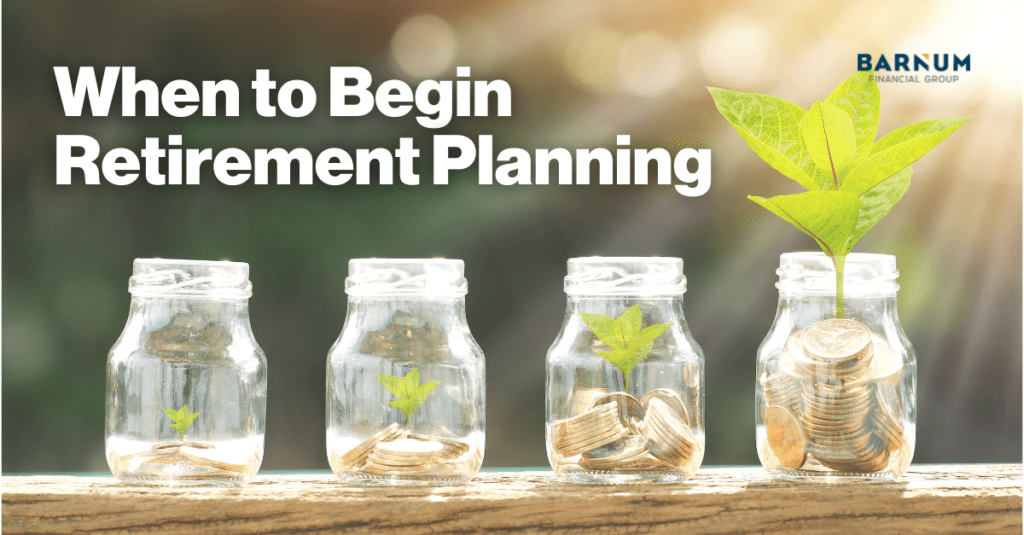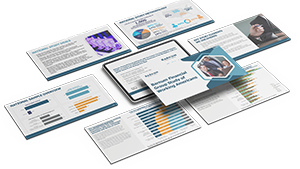One of the most important questions about retirement is not only which age you’d like to retire, but when you should begin planning for it. These tips can help you with that decision.

A basic principle for retirement planning is: It’s never too early to start. That said, there is no reason to be intimidated when thinking about saving for the future.
Start at the Beginning
Before planning for retirement, take an honest assessment of your current financial situation. Are you meeting your current expense needs while also putting money aside for long term savings? The earlier you begin saving for retirement, the better. It’s recommended to start retirement planning early in your professional life.
Determining Your Retirement Timeline
It’s never too early to think about your retirement date. While it’s fun to dream about early retirement and the positive aspects of that decision, it’s best to look at the full picture and determine what timeline works better for you.
Early retirement offers the benefits of more leisure time, the ability to travel, and the chance to be with family and friends. It can also lead to less stress and allow you more time to pursue healthy activities that might have been tougher to fit into your daily work life. Plus, retiring from your career job doesn’t mean you have to relinquish your earning power. Many early retirees start small businesses or move into part-time consulting roles. These plans help mitigate the biggest potential downside of early retirement: loss of regular income.
Understanding Future Expenses After Retirement
The best way to map out how to afford a comfortable lifestyle in retirement is to figure what expenses you will have after retiring. What will be your living expenses? What are your goals? There are several trustworthy online retirement tools that can help you make that determination. It also makes sense to sit down with a trusted financial professional.
What is Your Tax Situation?
Retirement account withdrawals may impact your tax bracket. It’s often determined by what type of account is being withdrawn from. Roth IRAs and Roth 401(k)s have qualified withdrawals that are tax-free. Withdrawals from traditional IRA and 401(k) accounts are taxable and treated as ordinary income. Therefore, it’s possible to end up in a higher tax bracket while in retirement.
It’s important to know that traditional IRAs and employee-sponsored 401(k) accounts are funded with pre-tax dollars. This allows contributions and earnings to build on a tax-deferred basis over time. That means you don’t have to pay tax on the money until you withdraw it during retirement. It’s also critical to ensure you don’t outlive your assets. This is all information to keep in mind when planning for post-retirement taxes.
Risk vs. Goals
Every retirement strategy is different, and each investor must assess their tolerance for risk. Often, risk tolerance can be measured by age. Younger investors may be more willing to absorb risks with the knowledge that, while the payoff may be greater, there would be more time to recover from financial losses suffered. Older investors may be more interested in protecting what they have, happy with their minimal returns. This goes back to analyzing your retirement goals and planning a strategy that allows you to realistically reach those goals.
Estate Planning
Of course, part of retirement planning is making sure those you care about are taken care of when you’re gone. A valid estate plan allows you to make decisions on how you want your assets distributed after you pass away. It’s important to understand that a legacy plan should be reviewed on a regular basis and updated as needed, based on life changes. You can work with a financial professional to determine how you want your money dispersed. It’s also important to include life insurance as part of your estate planning. It can provide death benefits to beneficiaries and help loved ones deal with expenses after your passing.
Summary
Patience and planning are important. Planning for retirement is a multi-step process. Understanding each step and its importance will allow you to feel more comfortable and secure that your retirement will be a time of peace, security, and enjoyment.



